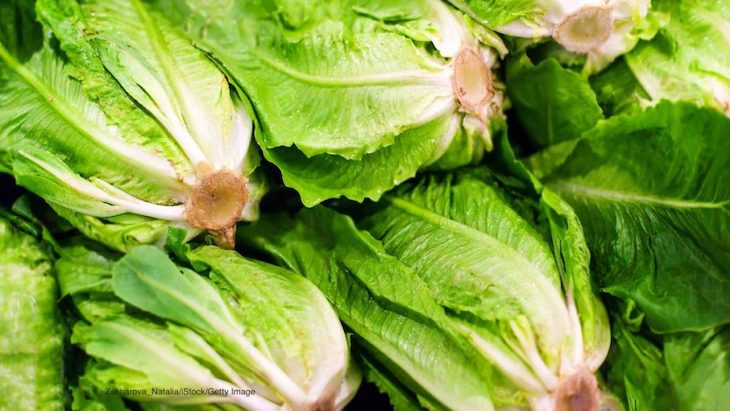FDA Deputy Commissioner for Food Policy and Response Frank Yiannas has posted a statement on the Salinas romaine lettuce E. coli O157:H7 outbreak and investigation. There are three separate outranks the FDA is tracking, caused by three different strains of E. coli O157:H7. They are: the large multistate outbreak linked to that lettuce, a small outbreak linked to Fresh Express Sunflower Crisp Chopped Salad Kit in the upper Midwest, and an outbreak associated with Evergreen restaurants in Seattle.

There is a common grower between each of these outbreaks, and that grower is located in Salinas, California. However, romaine from this grower doesn’t explain all of the illnesses in these outbreaks.
The last reported illness for all of the outbreaks was December 21, 2019. Yiannas says that the November 22, 2019 advisory not to eat romaine from Salinas “played an important role in preventing illnesses and containing this outbreak because it prompted the removal of romaine lettuce from Salinas from the marketplace and warned consumers to throw away romaine from that growing region.” But the growing season for romaine ended in November 2019.
The FDA’s investigation narrowed the investigation to a single grower’s 10 fields in the lower Salinas Valley. These fields were visited by investigators from the FDA, CDC, the California Department of Food and Agriculture and the California Department of Public Health, who took a variety of samples from water, soil, and compost.
Sample results from those tests have ball come back negative for all of the three outbreak strains of E. coli O157:H7. But investigators did find a strain of E. coli unrelated to any illnesses in a soil sample taken near a run-off point in a buffer zone between a field where product was harvested and where cattle are known to occasionally graze. Yiannas says this is an important clue, but doesn’t explain the illnesses in these outbreaks.
The FDA is planning to conduct an additional in depth investigation, to see what preventative controls are needed to prevent more outbreaks. The E. coli O157:H7 strain that sickened people in the large outbreak last year is the same strain that caused outbreaks in 2017 linked to leafy greens and 2018 linked to romaine
The FDA is continuing their sampling assignment to monitor for pathogens in romaine across the country. And they are trying to focus on prevention to stop outbreaks in the future. Yiannas does mention that traceback has lagged in food outbreak investigations beaus there is no modernized food traceability capabilities. The agency is launching a New Era of Smarter Food Safety initiative and use technology advances to improve trackback through the supply chain and get information to consumers about outbreaks more quickly.




